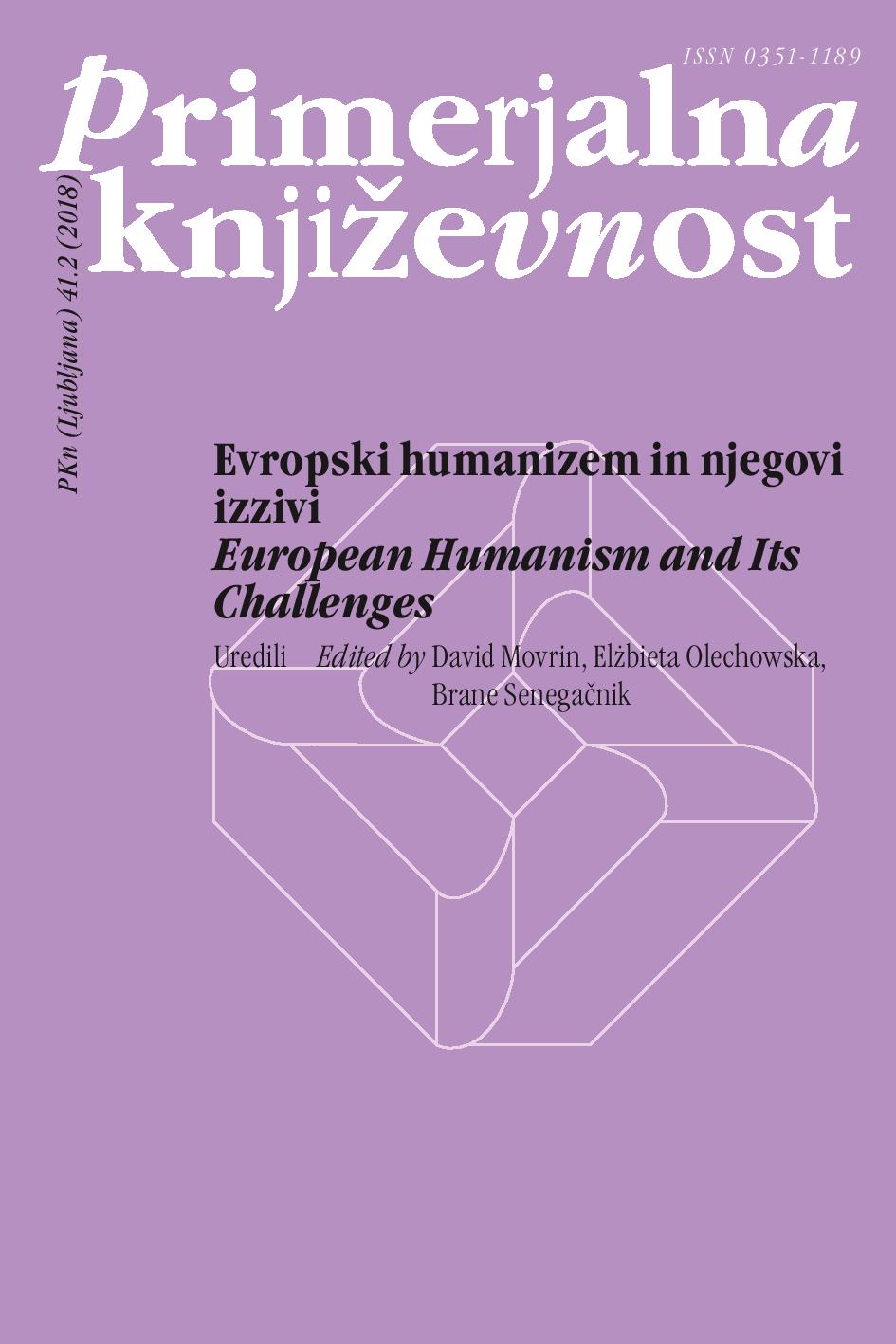Nihil odiosius quam nomen Italorum: Vergerio the Younger Between Humanist Universalism and Nationalism
Keywords:
Vergerio, Pier Paolo the Younger, Council of Trent, Protestantism, protestant literature, pamphlets, nationalismAbstract
Pier Paolo Vergerio (the Younger) wrote his “Two Treatises of the Papal Secretary” (Actiones duae secretarii pontificii) as a fictional debate, intended for Pope Paul IV. The satirical texts, to which Vergerio subsequently added the third one, are by no means essential reading – nor are they the best of what Vergerio himself wrote in his life. However, they manage to create the impression that they bring a serious matter-of-fact debate about real dilemmas related to the Council of Trent. During the time of their writing, these dilemmas were more or less non-existent (albeit not due to Vergerio’s fault but rather because of Paul’s reluctance towards the Council of Trent). While the first debate gives testimony of Vergerio’s “political and expert background”, the second one openly addresses not only the issues of religious strife but also the possibility of an armed conflict, which could possibly take place after reconvening the council. The line of thought expressed in this second debate is marked by openly nationalistic viewpoints, to which Vergerio – a former papal nuncio to Ferdinand’s court – could be no stranger, yet he could not have developed any intimate inclination towards them as a humanist of the universalist type (and it seems unfathomable that he did so later during the years of exile). This paper addresses Vergerio’s Actiones, trying to raise some questions about what motivated their author during the time of their writing.References
Burton, Gideon. »From Ars dictaminis to Ars conscribendi epistolis: Renaissance Letter-Writing Manuals in the Context of Humanism«. Letter-Writing Manuals and Instruction from Antiquity to the Present: Historical and Bibliographic Studies. Ur. Carol Poster, Linda C. Mitchell. Columbia, S. C.: University of South Carolina Press, 2007.
Cavazza, Silvano. »Nenavadna osebnost: profil Petra Pavla Vergerija«. Stati inu obstati: revija za vprašanja protestantizma 17/18 (2013): 10–26.
Earl, Donald C. The Political Thought of Sallust. Cambridge: Cambridge University Press, 1964.
– – –. »Prologue Form in Ancient Historiography«. Aufstieg und Niedergang der römischen Welt 1.2 (1972): 842–856.
Gantar, Kajetan. »Andreas Divus iz Kopra – prevajalec Homerja«. Divina – Andreas Divus Iustinopolitanus. Ur. Gregor Pobežin in Peter Štoka. Koper: Osrednja knjižnica Srečka Vilharja, 2016. 19–26.
Haug-Moritz, Gabriele. »The Holy Roman Empire, the Schmalkald League, and the Idea of Confessional Nation-Building«. Proceedings of the American Philosophical Society 154.4 (2008): 427–439.
Hörnkvist, Mikael. »The Two Myths of Civic Humanism«. Renaissance Civic Humanism: Reappraisals and Reflections. Ur. James Hankins. Cambridge: Cambridge University Press, 2003.
Jovanović, Neven. »Pavao Skalić protiv Pier Paola Vergeria«. Actiones duae secretarii pontificii Petri Pauli Vergerii. Ur. Gregor Pobežin in Peter Štoka. Koper: Osrednja knjižnica Srečka Vilharja, 2018. 27–57.
Kapust, Daniel J. Republicanism, Rhetoric and Roman Political Thought: Sallust, Livy and Tacitus. Cambridge: Cambridge University Press, 2011.
Kittelson, James M. »Humanism and the Reformation in Germany«. Central European History 9.4 (1976): 303–322.
Kottke, Dirk. »O izgubljenem epitafu za Petra Pavla Vergerija (1498–1565)«. Stati inu obstati: revija za vprašanja protestantizma 21/22 (2015): 65–73.
Krebs, Christopher. A Most Dangerous Book: Tacitus’s Germania from the Roman Empire to the Third Reich. New York: W. W. Norton & Co., 2011.
Marinčič, Marko. »Amore patriae teneri non potuit: dva Vergerija o Hieronimu«. Actiones duae secretarii pontificii Petri Pauli Vergerii. Ur. Gregor Pobežin in Peter Štoka. Koper: Osrednja knjižnica Srečka Vilharja, 2018. 11–25.
Osmond, Patricia J. »Princeps Historiae Romanae: Sallust in Renaissance Political Thought«. Memoirs of the American Academy in Rome 40 (1995): 101–143.
Pastor, Ludwig. The History of the Popes: From the Close of the Middle Ages 11. London: Kegan Paul, Trench, Trubner & Co., 1923.
Pierce, Robert A. Pier Paolo Vergerio the Propagandist. Rim: Edizioni di Storia e Letteratura, 2003.
Pobežin, Gregor. »Andreas Divus – uganka na pragu moderne dobe«. Divina – Andreas Divus Iustinopolitanus. Ur. Gregor Pobežin in Peter Štoka. Koper: Osrednja knjižnica Srečka Vilharja, 2016. 83–99.
– – –. »Magna enim erat spes de pace – Vergerijev spis Duae actiones secretarii pontificii in njegova stališča do Tridentinskega koncila«. Actiones duae secretarii pontificii Petri Pauli Vergerii. Ur. Gregor Pobežin in Peter Štoka. Koper: Osrednja knjižnica Srečka Vilharja, 2018. 59–89.
Ratzinger, Joseph. The Ratzinger Reader: Mapping a Theological Journey. London: T&T Clark, 2010.
Schutte, Ann Jacobson. Pier Paolo Vergerio: The Making of an Italian Reformer. Ženeva: Librairie Droz, 1977.
Sixt, Christian Heinrich. Petrus Paulus Vergerius, päpstlicher Nuntius, katholischer Bischof und Vorkämpfer des Evangeliums: eine reformationsgeschichtliche Monographie. Braunschweig: Schwetschke & Sohn, 1871.
Štoka, Peter. »Vergerijevi pismi Janu Lutomirskemu in Johanu Oporinu«. Actiones duae secretarii pontificii Petri Pauli Vergerii. Ur. Gregor Pobežin in Peter Štoka. Koper: Osrednja knjižnica Srečka Vilharja, 2018. 91–123.
Tomizza, Fulvio. Zlo pride s severa: roman o škofu Vergeriju. Ljubljana: Beletrina, 2015.
Vergerij, Peter Pavel. Actiones duae secretarii pontificii Petri Pauli Vergerii. Ur. Gregor Pobežin in Peter Štoka. Koper: Osrednja knjižnica Srečka Vilharja, 2018.
Whaley, Joachim. Germany and the Holy Roman Empire 1: From Maximilian I to the Peace of Westphalia 1493–1648. Oxford: Oxford University Press, 2012.


